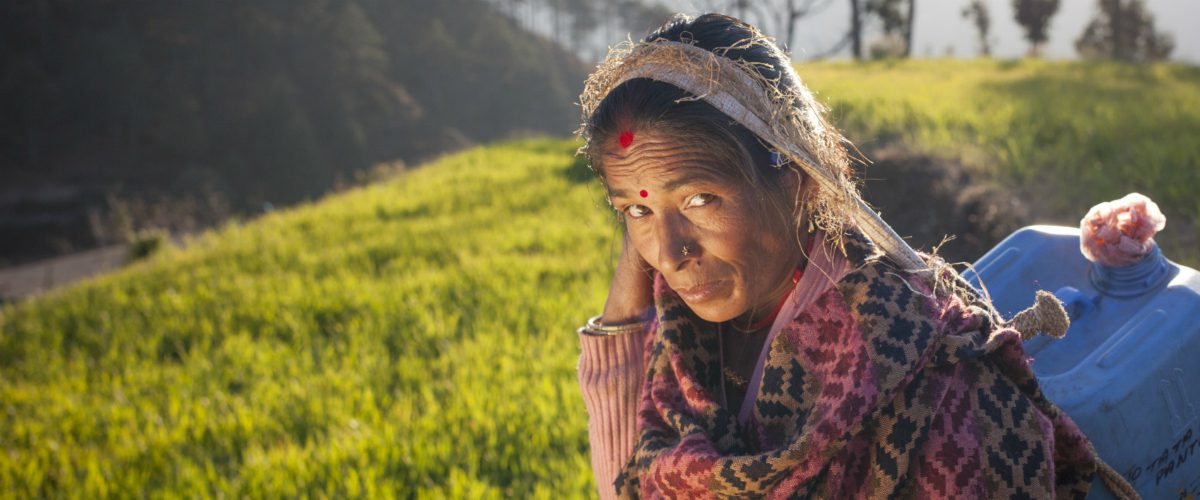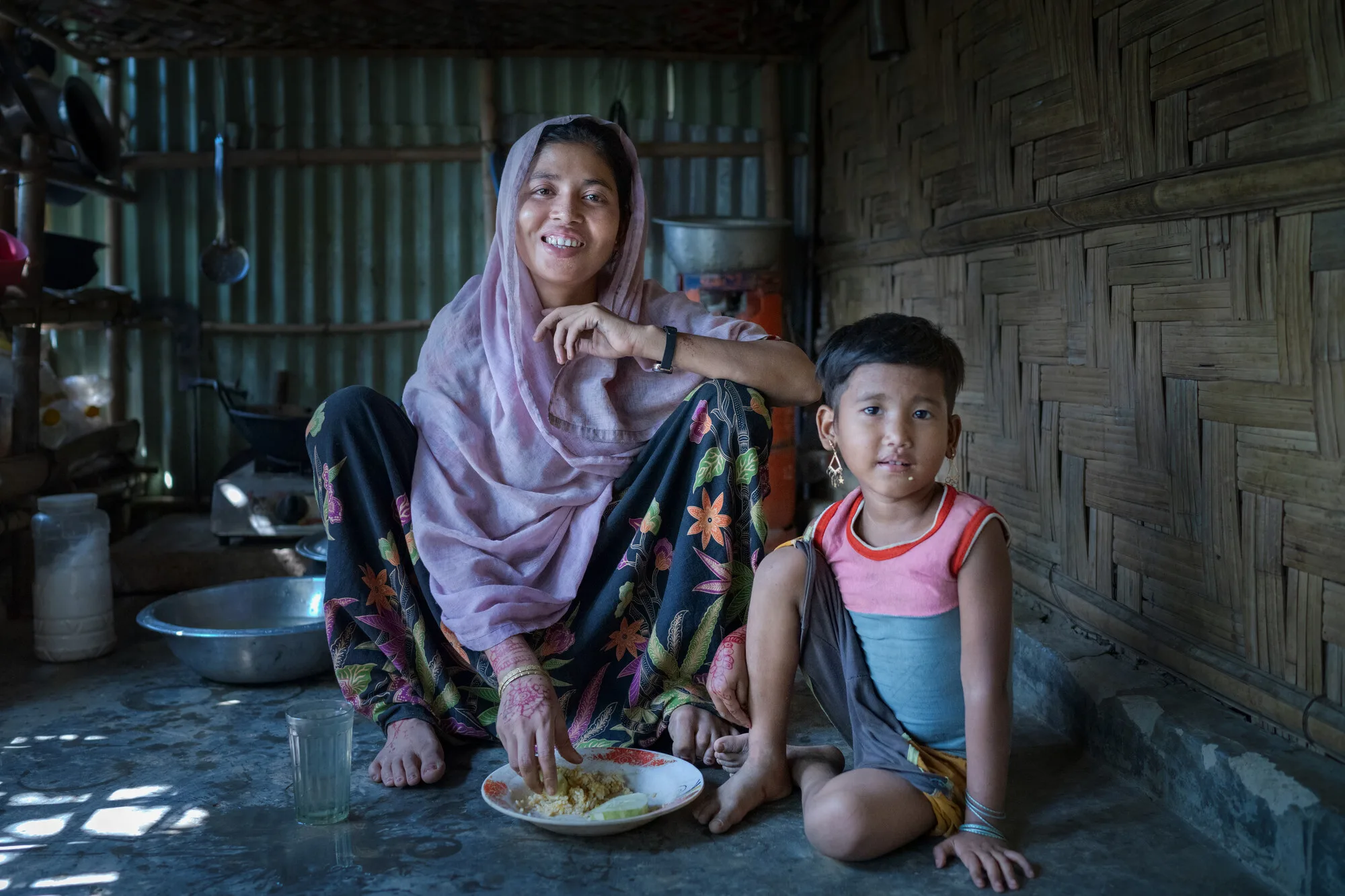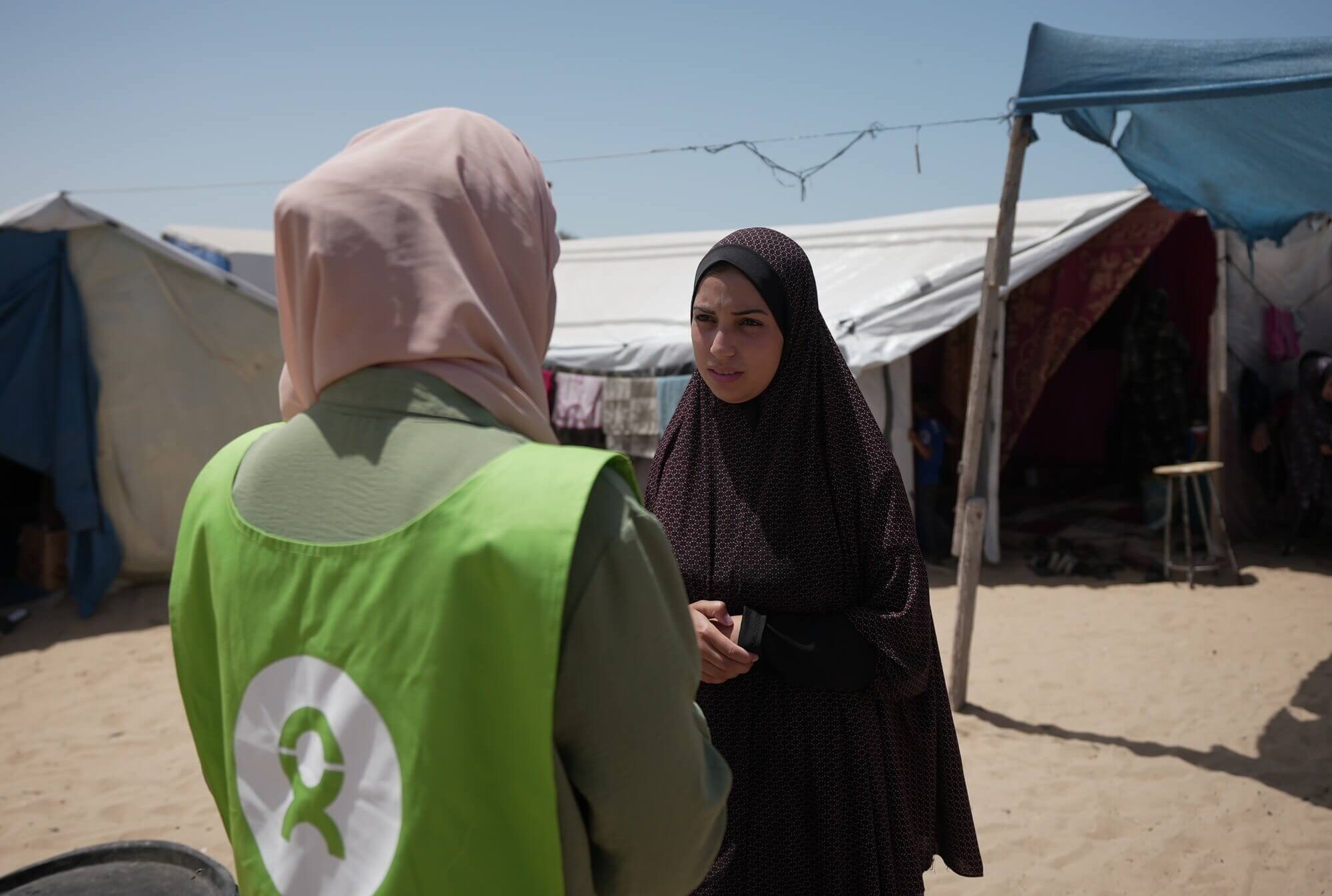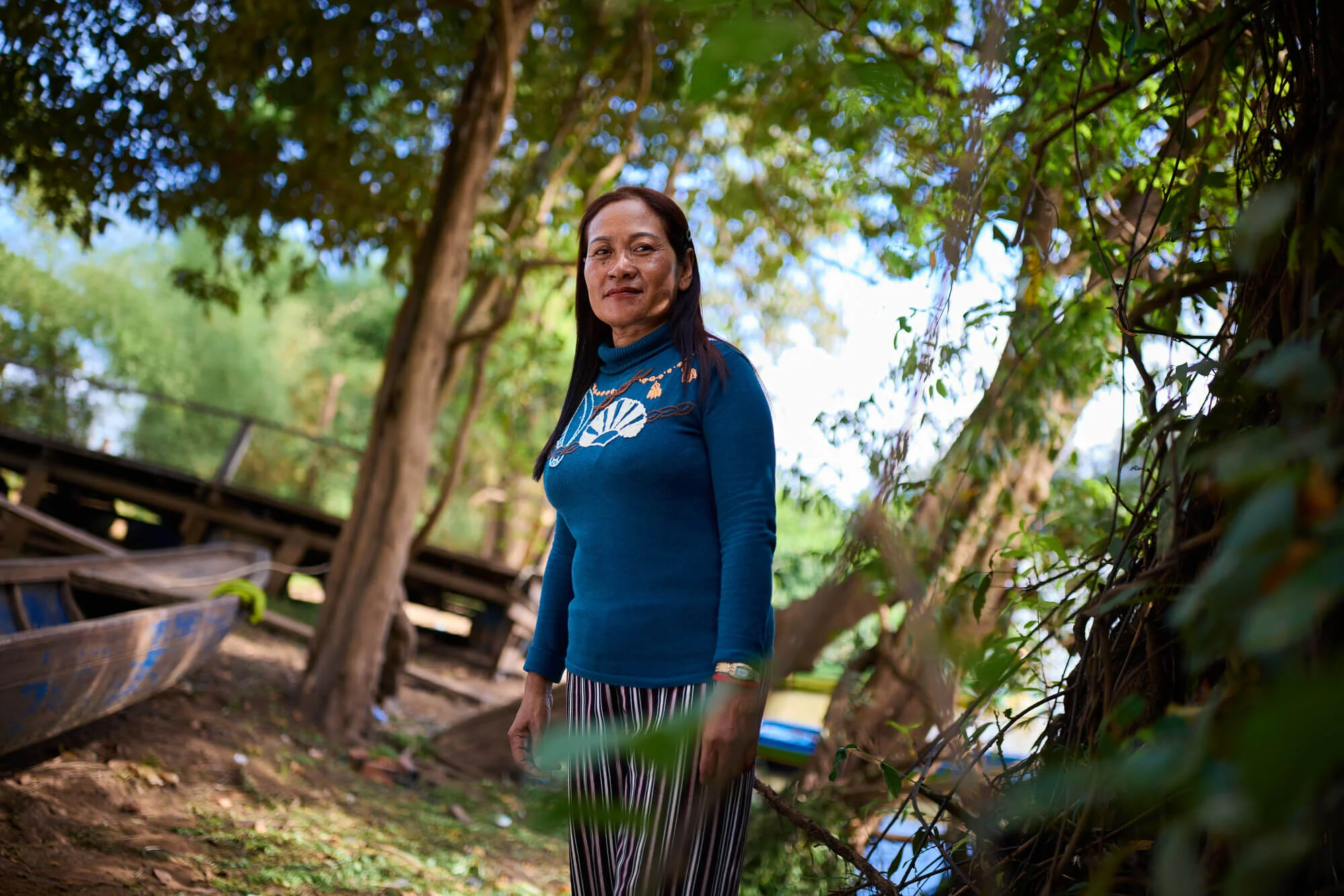By Oxfam’s Kate Bensen, written from the field in Nepal.
Today we wrapped up another big day in the mountains of Baitadi, in the far west of Nepal, right up against the border of India.
Before hiking back to our car for the bumpy ride to our hotel, silence fell over us. The layers of mountain silhouettes looked like lines of a watercolour painting in the afternoon light.
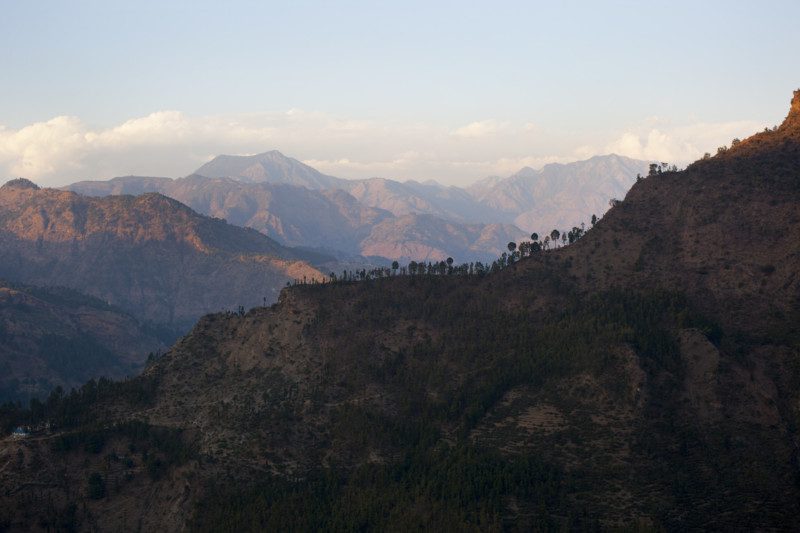
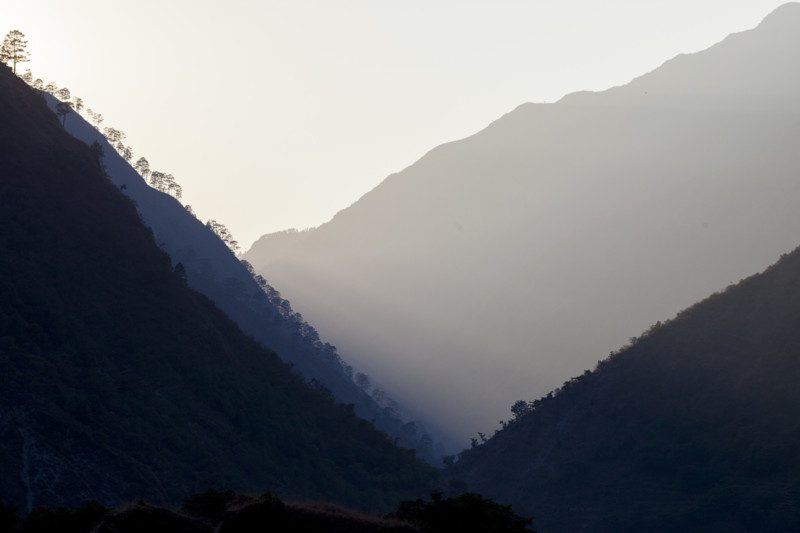
Nepal seems like a land of contradictions — a beautiful place scarred by such poverty and hardship. As a woman, I’m struck by the harsh reality of daily life for women in this area.
We spent time here with a woman named Hira who has only ever had dirty water. Every day, she spends about 14 hours carrying that dirty water in 50-litre containers up and down the steep mountainside. The water makes her family sick, and Hira often lays awake at night, her body racked with unbearable pain. She showed me the medicines she uses for the pain, but I struggle to imagine how anything could relieve the pain of hauling a heavy, ice-cold bucket on a strap around her forehead.
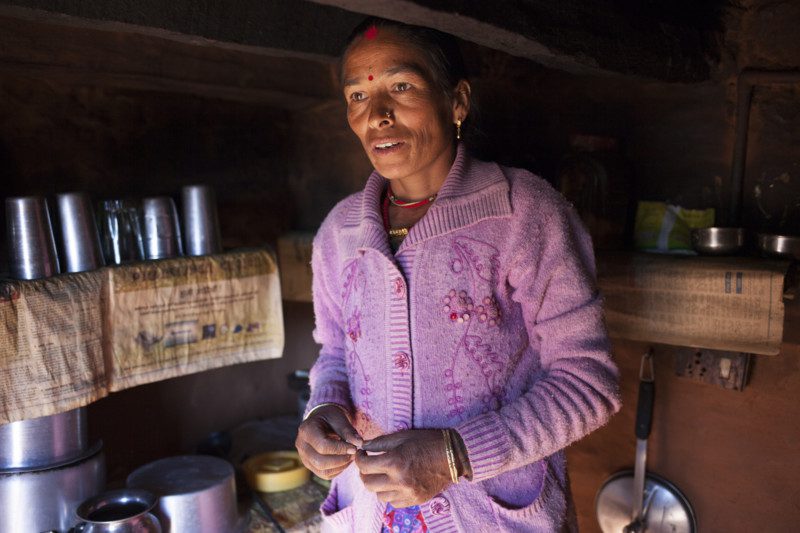
Hira in her home in Baitadi, Nepal
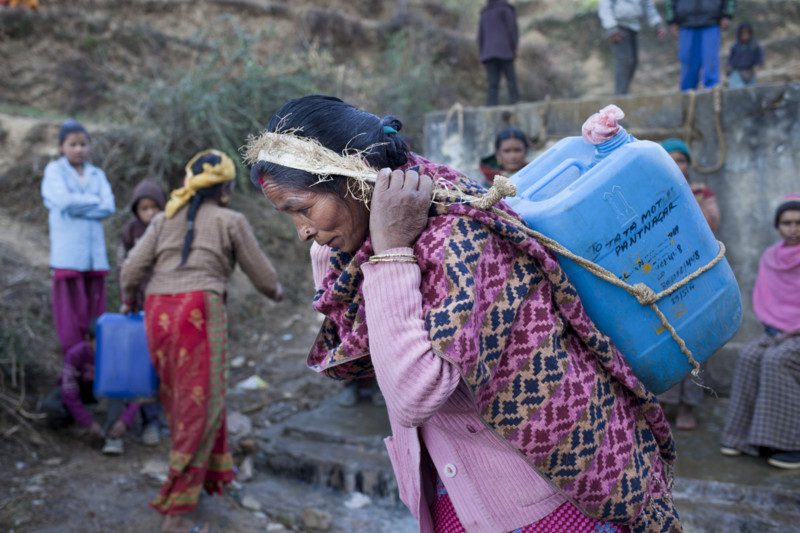
Hira collecting dirty water from a well; she carries 50L of water on her back each trip
Hira described the skin rashes that spread across her body when the water’s really bad, and the stomach cramps and diarrhoea that happen every few weeks. Other local women shared similar stories.
In Darchula, Dhana told me about the heavy workload of Nepali women. She was married when she was six and had her first child at 10. She’s been so sick from water-related illnesses her entire life that she has constant bouts of diarrhoea and can’t walk for more than a few minutes at a time due to intense pain. Dhana has endured so much — I’m humbled by her strength and perseverance.
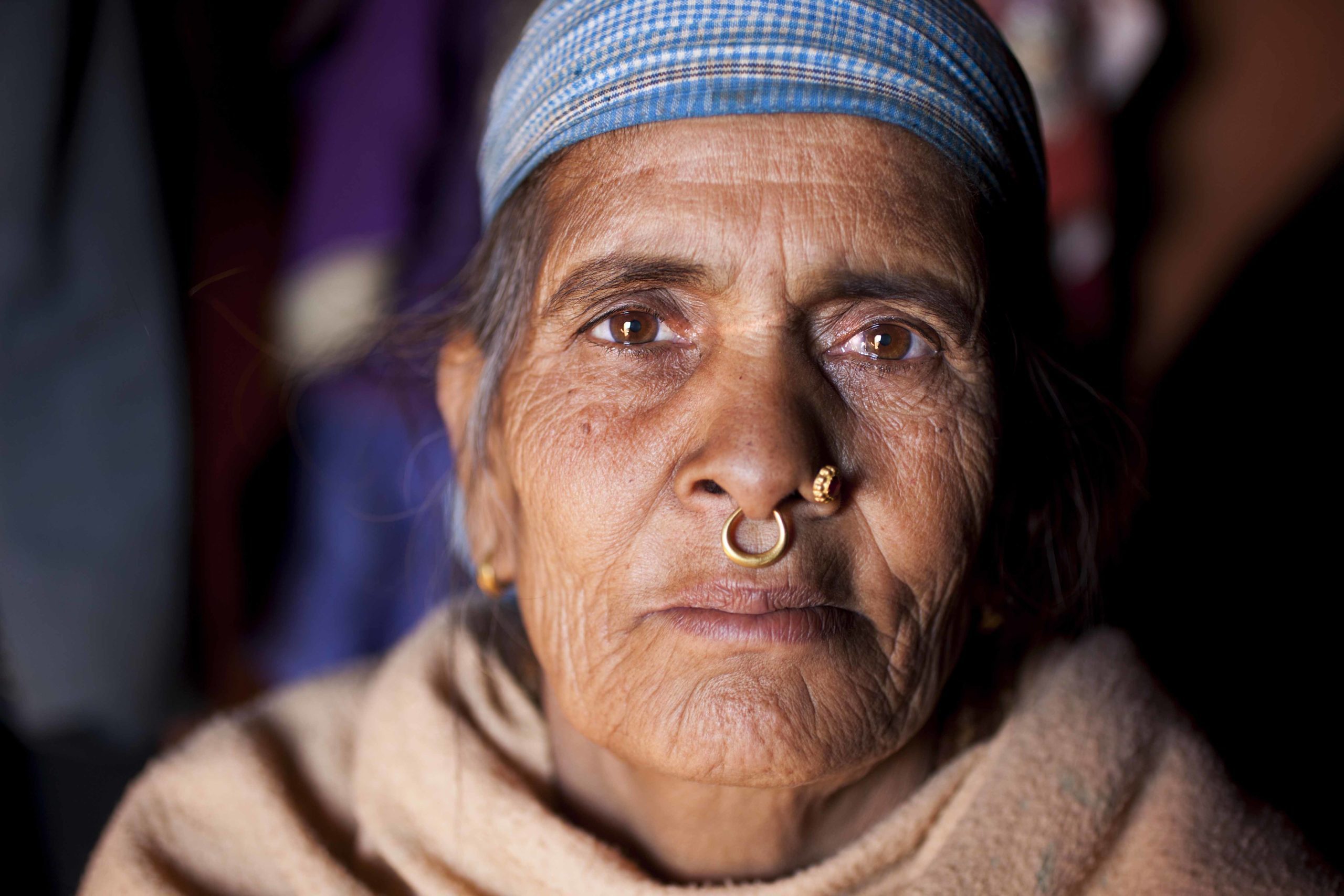
Dhana
I asked Hira about the challenges women and girls face in Far West Nepal. She hopes the younger generation won’t suffer like she has in her lifetime. Hira spoke about her dreams to see her village more developed, with better roads and water infrastructure. She told me, “I want to see women and girls from this village more educated, just like you. I want to see them have the power to do anything they want and to be able to earn money for themselves.”
“I want to see women and girls from this village more educated, just like you. I want to see them have the power to do anything they want and to be able to earn money for themselves.”
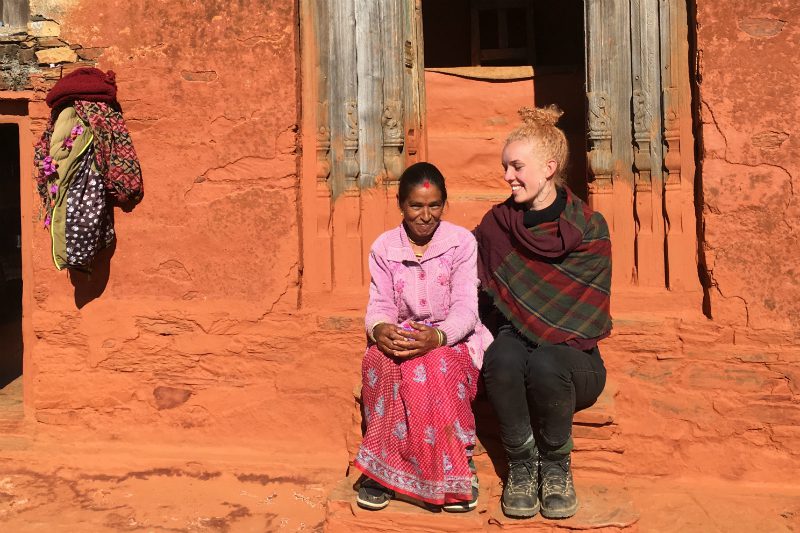
Oxfam’s Kate Bensen with Hira
On this trip, I’ve seen the amazing impact of Oxfam’s water and sanitation projects in other parts of Nepal. It’s clear that access to clean water would vastly improve the quality of life for women like Hira and Dhana. Imagine what they could achieve with those extra 14 hours a day, let alone the extra time that’s robbed by waterborne illness. It’s a great privilege to be invited into these women’s homes, and even more humbling to have such open conversations with them about their hopes and fears.
If you are reading this, I hope you will chip in to support Oxfam’s important work in Baitadi and Darchula. I know Australians sent lots of generous support when other parts of Nepal were hit by brutal earthquakes three years ago.
Much progress has been made since then — but in the mountains of Far West Nepal, plenty of people like Dhana and Hira are still in urgent need of support.
Photos: Abbie Trayler-Smith/OxfamAUS
